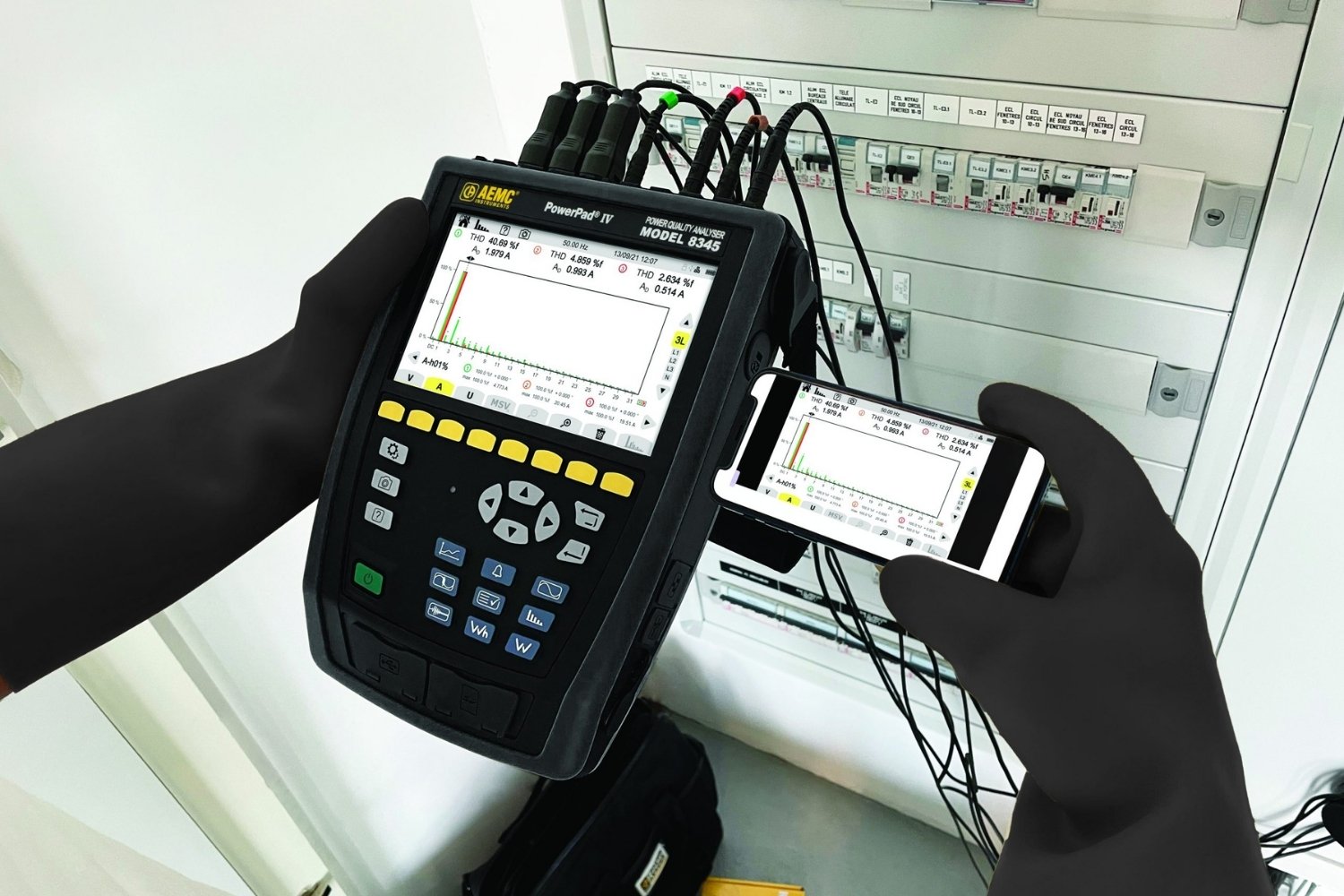
What is a power quality analyzer? A power quality analyzer is a device used to measure and monitor the quality of electrical power in a system. It helps identify issues like voltage sags, swells, harmonics, and interruptions that can affect the performance of electrical equipment. By providing detailed data on power conditions, these analyzers help ensure that electrical systems run efficiently and reliably. They are essential tools for engineers, electricians, and facility managers who need to maintain optimal power quality in industrial, commercial, and residential settings. Understanding how to use a power quality analyzer can save time, reduce costs, and prevent equipment damage.
What is a Power Quality Analyzer?
A Power Quality Analyzer (PQA) is a device used to measure and analyze the quality of electrical power in a system. It helps identify issues like voltage sags, swells, harmonics, and other disturbances that can affect the performance of electrical equipment.
- Monitors Electrical Parameters: PQAs measure voltage, current, frequency, and power factor to ensure the electrical system operates efficiently.
- Detects Harmonics: These devices identify harmonic distortions, which can cause overheating and equipment malfunction.
- Records Data: PQAs store data over time, allowing for trend analysis and troubleshooting.
- Portable and Fixed Models: Available in both portable and fixed installations, catering to different needs.
- Real-time Monitoring: Some models offer real-time monitoring, providing instant feedback on power quality.
Why is Power Quality Important?
Power quality impacts the efficiency and lifespan of electrical equipment. Poor power quality can lead to increased energy costs, equipment failure, and downtime.
- Reduces Downtime: Identifying and correcting power quality issues can prevent unexpected equipment failures.
- Improves Efficiency: Good power quality ensures that electrical systems run efficiently, reducing energy consumption.
- Extends Equipment Life: Minimizing power disturbances can prolong the lifespan of electrical equipment.
- Compliance with Standards: Ensures compliance with international power quality standards like IEEE and IEC.
- Cost Savings: Reducing power quality issues can lead to significant cost savings in maintenance and energy bills.
Common Power Quality Issues
Understanding common power quality issues helps in diagnosing and resolving them effectively.
- Voltage Sags: Short-term drops in voltage can cause equipment to malfunction or shut down.
- Voltage Swells: Temporary increases in voltage can damage sensitive equipment.
- Harmonic Distortion: Non-linear loads can introduce harmonics, leading to overheating and inefficiency.
- Transients: Sudden spikes in voltage can cause immediate damage to equipment.
- Flicker: Rapid changes in voltage can cause lights to flicker, affecting visibility and comfort.
Applications of Power Quality Analyzers
PQAs are used in various industries to ensure reliable and efficient operation of electrical systems.
- Industrial Plants: Monitor and improve the power quality in manufacturing processes.
- Commercial Buildings: Ensure stable power supply for lighting, HVAC, and office equipment.
- Data Centers: Maintain power quality to prevent data loss and equipment failure.
- Utilities: Monitor power quality across the grid to ensure reliable service.
- Renewable Energy: Assess power quality in solar and wind energy systems.
Features of Modern Power Quality Analyzers
Modern PQAs come with advanced features that enhance their functionality and ease of use.
- Touchscreen Interface: Many PQAs feature intuitive touchscreen interfaces for easy operation.
- Wireless Connectivity: Allows remote monitoring and data transfer.
- Advanced Software: Comes with software for detailed analysis and reporting.
- Multiple Channels: Can monitor multiple channels simultaneously.
- Battery Operated: Portable models often come with rechargeable batteries for field use.
How to Choose a Power Quality Analyzer
Selecting the right PQA depends on the specific needs and applications.
- Measurement Range: Ensure the PQA can measure the required voltage and current ranges.
- Accuracy: Look for high accuracy to ensure reliable data.
- Data Storage: Consider the storage capacity for long-term monitoring.
- Ease of Use: User-friendly interfaces and software make operation simpler.
- Durability: Choose a robust model that can withstand harsh environments.
Benefits of Using a Power Quality Analyzer
Using a PQA offers numerous benefits for maintaining and improving electrical systems.
- Proactive Maintenance: Identifies issues before they cause significant problems.
- Enhanced Safety: Ensures electrical systems operate safely, reducing the risk of accidents.
Power Quality Analyzers: The Final Word
Power quality analyzers are essential tools for anyone dealing with electrical systems. They help identify issues like voltage sags, swells, and harmonics that can damage equipment or disrupt operations. By using these devices, you can ensure your electrical systems run smoothly and efficiently. They’re invaluable for troubleshooting, maintenance, and even for improving energy efficiency.
Investing in a good power quality analyzer can save you time, money, and headaches in the long run. Whether you’re a professional electrician, an engineer, or a facility manager, understanding the importance of power quality can make a significant difference in your work. So, next time you face electrical issues, remember that a power quality analyzer might just be the tool you need to get things back on track.
Was this page helpful?
Our commitment to delivering trustworthy and engaging content is at the heart of what we do. Each fact on our site is contributed by real users like you, bringing a wealth of diverse insights and information. To ensure the highest standards of accuracy and reliability, our dedicated editors meticulously review each submission. This process guarantees that the facts we share are not only fascinating but also credible. Trust in our commitment to quality and authenticity as you explore and learn with us.
